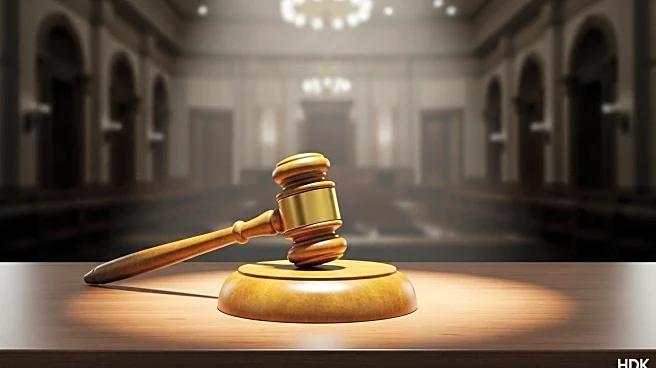What's Happening?
President Trump has petitioned the Supreme Court to allow him to dismiss Federal Reserve Governor Lisa Cook, following allegations of mortgage fraud. The Justice Department, led by Solicitor General D. John Sauer, argues that lower court rulings preventing Cook's removal constitute improper judicial interference with presidential authority. Trump initially attempted to fire Cook, a Biden appointee, citing concerns over her mortgage applications. Despite these allegations, Cook has not been charged with any crime and has sued the administration, claiming her actions do not meet the statutory requirement for dismissal. A federal judge temporarily blocked her firing, and a divided DC appeals court upheld this decision, prompting the Supreme Court appeal.
Why It's Important?
This case highlights the ongoing tension between the executive branch and judicial oversight regarding presidential powers. The outcome could set a precedent for the extent of presidential authority in dismissing federal officials. If the Supreme Court sides with Trump, it may embolden future presidents to exert more control over independent agencies like the Federal Reserve. Conversely, a ruling against Trump could reinforce judicial checks on executive actions, impacting how federal governance is structured. The decision also has implications for the Federal Reserve's independence, potentially affecting its ability to make unbiased economic decisions.
What's Next?
The Supreme Court's decision will be pivotal in determining the balance of power between the presidency and independent federal agencies. Stakeholders, including political leaders and economic analysts, are closely monitoring the case for its potential impact on governance and economic policy. The ruling could influence future appointments and dismissals within the Federal Reserve, affecting its policy direction. Additionally, the decision may prompt legislative discussions on clarifying the grounds for dismissing federal officials, ensuring accountability while preserving agency independence.
Beyond the Headlines
The ethical implications of the case are significant, as it raises questions about the integrity of federal officials and the standards for their dismissal. The allegations against Cook, if proven, could undermine public trust in the Federal Reserve and its governance. Moreover, the case may lead to broader discussions on the ethical responsibilities of federal appointees and the mechanisms for addressing misconduct. Long-term, the case could influence how future administrations approach the appointment and oversight of federal officials, potentially reshaping the landscape of federal governance.










